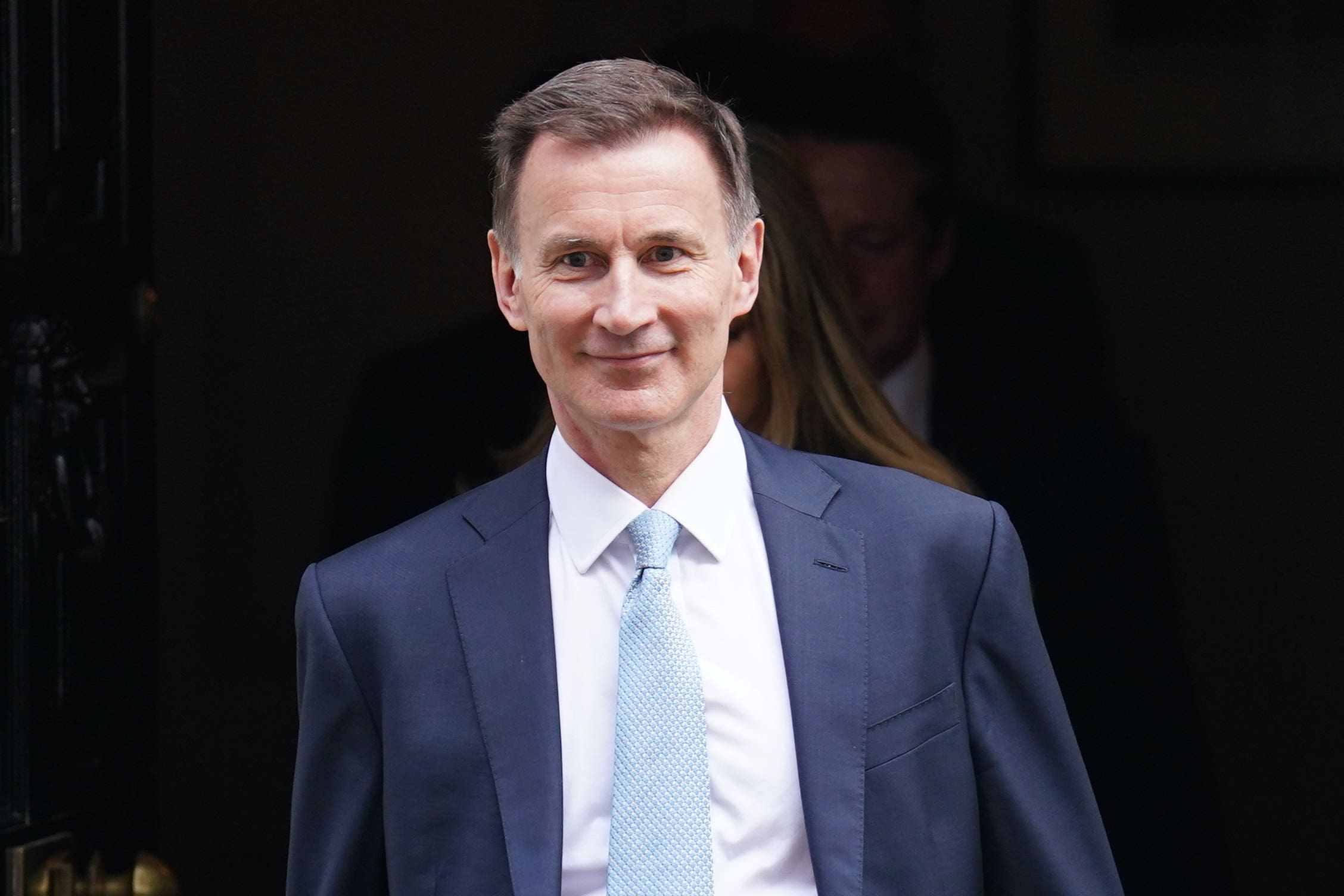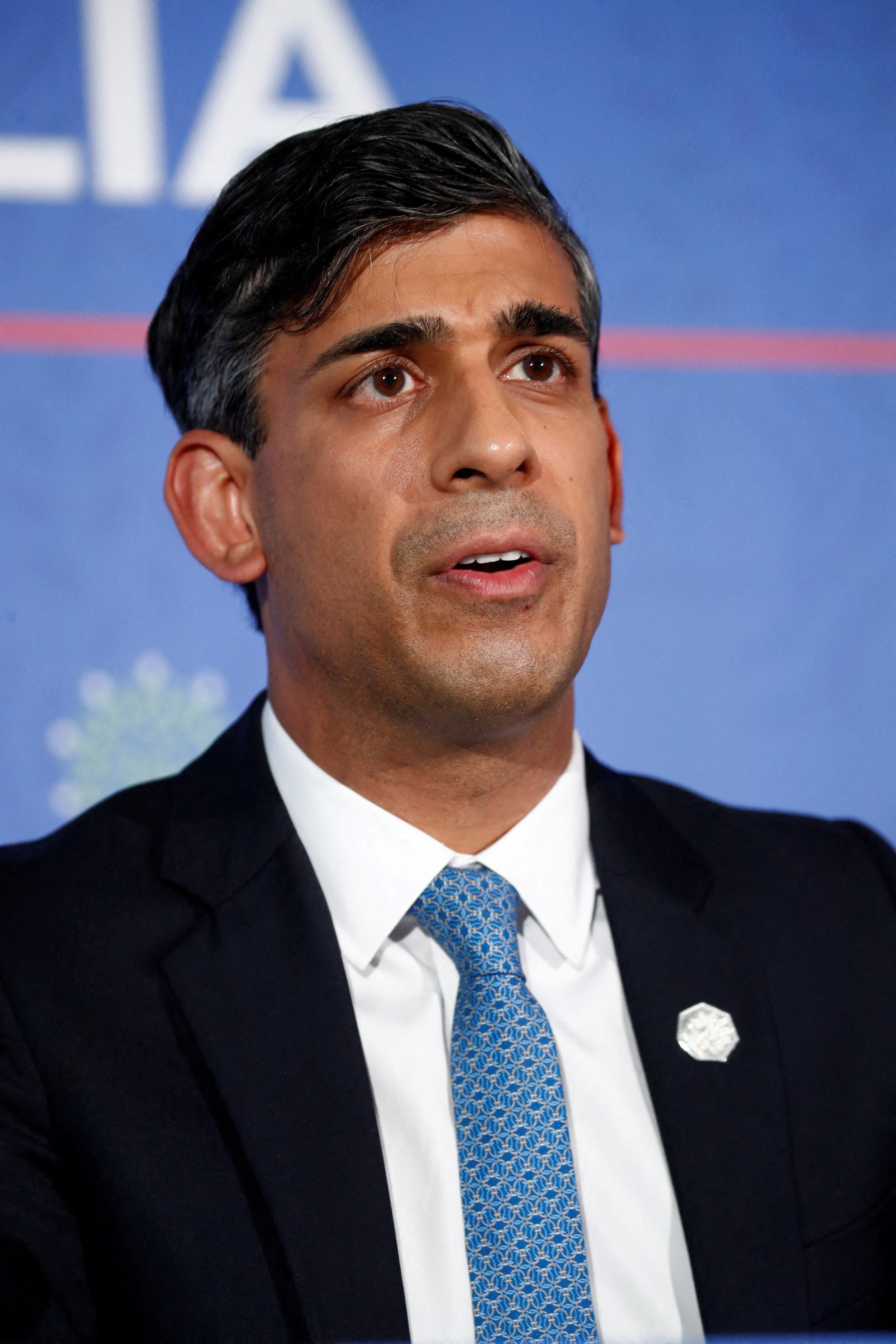Conservatives on course for worst defeat in over a century with Jeremy Hunt to lose seat, new mega-poll shows
Party would also be completely wiped out in Wales
Your support helps us to tell the story
From reproductive rights to climate change to Big Tech, The Independent is on the ground when the story is developing. Whether it's investigating the financials of Elon Musk's pro-Trump PAC or producing our latest documentary, 'The A Word', which shines a light on the American women fighting for reproductive rights, we know how important it is to parse out the facts from the messaging.
At such a critical moment in US history, we need reporters on the ground. Your donation allows us to keep sending journalists to speak to both sides of the story.
The Independent is trusted by Americans across the entire political spectrum. And unlike many other quality news outlets, we choose not to lock Americans out of our reporting and analysis with paywalls. We believe quality journalism should be available to everyone, paid for by those who can afford it.
Your support makes all the difference.The Conservatives are on course for their worst defeat in more than a century with high-profile names including Jeremy Hunt set to lose their seats, according to a new poll.
Adding further misery to a raft of gloomy polls for the government, the party will also be completely wiped out in Wales on July 4, the survey predicts.
Luke Tryl, executive director of More In Common UK, which carried out the research, said the findings showed that the Tories were in a “deep hole” and the problem was getting worse.
The poll, of more than 10,000 people, suggests they would hold on to just 155 seats, their worst total since 1906.
Labour would be on 406 and have a majority of 162, just shy of its 1997 and 2001 landslides.
As well as Mr Hunt, Tory casualties would also include defence secretary Grant Shapps, who would lose Welwyn Hatfield to Labour.

The poll also forecasts the Liberal Democrats will quadruple the number of seats they hold, to 49, while the SNP will be reduced to 18 seats.
Labour will also become Scotland’s biggest party for the first time since 2015.
But it predicts that Nigel Farage’s Reform UK will fail to take a seat.
The super poll also plots the effect of a last minute swing away from the Conservatives, potentially to Reform, which could leave the Tories with as few as 107 seats.
The data was collected between May 22 and June 17, including a period before Mr Farage announced his decision to stand in this election.
The results are the most favourable for the Conservatives of recent large-scale polls, but still predicts significant defeat.
A similar study by Ipsos on Tuesday projected the party would hold just 115 seats, a Labour majority of 256.
Mr Tryl said the fact that the poll is one of the more positive for the Tories "shows how deep a hole the party finds itself in" with barely two weeks left until polling day.
He said: "Far from the narrowing in the polls many expected to see by now, the Conservatives’ position instead appears to be getting worse and only a small move away from them could see them reduced to 107 seats.
"Labour on the other hand looks set to inherit a historic majority while remaining largely undefined in the eyes of the electorate."

But he warned that Labour was building a "broad electoral coalition" that the party could find is difficult to keep happy further down the line.
The poll, conducted on behalf of The News Agents podcast, asked 10,850 people.
Like other large-scale polls it used a technique called multilevel regression with poststratification (MRP) to model results at constituency level.
The poll also forecasts that the Greens will hold Brighton Pavilion, their only seat, but will fail to make gains elsewhere .

Join our commenting forum
Join thought-provoking conversations, follow other Independent readers and see their replies
Comments